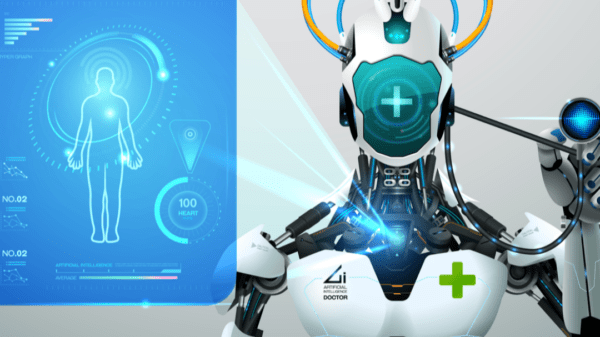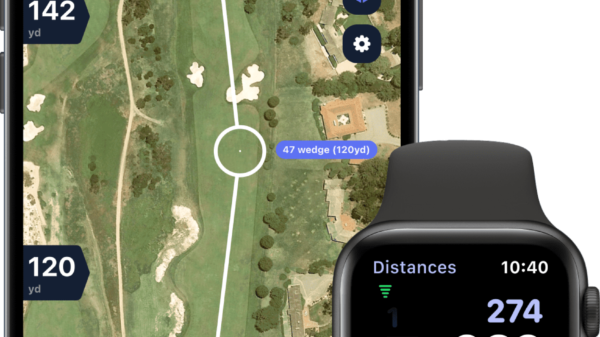Virtual assistants replace doctors for healthcare advice.
“From bytes to bedside manners: Unveiling the role of virtual assistants in your health journey.”
Key Takeaways:
- Virtual medical assistants use technology for health advice.
- They offer initial diagnosis suggestions and wellness tips.
- They help users make informed health decisions.
- Virtual assistants are a substitute for doctors.
In an era where technology is propelling the boundaries of innovation, the healthcare landscape is also undergoing a remarkable transformation. Enter virtual medical assistants—an evolution in patient care that redefines how we seek medical advice. As we stand at the crossroads of human expertise and digital advancement, the role of these virtual counterparts in offering healthcare advice has sparked conversations beyond the confines of the medical realm.
Gone are the days when a routine health query meant scheduling an appointment days in advance, awaiting your turn in a crowded waiting room, and finally consulting a physician. Today, virtual medical assistants are at the forefront of this shift, offering immediate access to medical insights, diagnosis suggestions, and wellness tips, all with a few taps on your device. But while this new age of healthcare convenience holds immense promise, it raises crucial questions: Can virtual assistants truly replace the invaluable insights of experienced doctors? What boundaries of confidentiality and data security must they adhere to? And what are the potential pitfalls of placing our trust solely in lines of code?
Understanding Virtual Medical Assistants: Enhancing Healthcare through Digital Guidance
In an era characterized by remarkable technological strides, healthcare is undergoing a revolution that extends far beyond the doctor’s office. At the heart of this transformation lies the concept of virtual medical assistants—sophisticated digital tools designed to provide healthcare information and advice at our fingertips. Let’s delve into the world of these virtual allies, examining their definition, functions, and the pivotal role they play in guiding individuals toward better health.
Definition and Functions of Virtual Medical Assistants
Virtual medical assistants, often called VMAs, are software-based solutions to bridge the gap between patients and healthcare insights. Rooted in advanced algorithms, machine learning, and real-time data analysis, these digital companions can provide users with accurate medical information, initial diagnosis suggestions, and preventive health measures. Operating through web-based platforms or mobile applications, VMAs are accessible 24/7, enabling users to seek advice whenever health concerns arise without needing an immediate doctor’s appointment.
These virtual assistants are not intended to replace the expertise of medical professionals; rather, they complement traditional healthcare services by offering a preliminary understanding of various health conditions. From suggesting possible causes behind symptoms to recommending appropriate next steps, VMAs empower individuals to make informed decisions about their health. With the ability to sift through a vast database of medical knowledge, these digital entities provide users with relevant information tailored to their queries, ensuring a personalized and accessible healthcare experience.
Role in Providing Healthcare Information and Advice
Virtual medical assistants’ role goes beyond mere sources of medical information. They are adept at engaging users in intuitive conversations akin to dialogues with healthcare providers. Users can input their symptoms, medical history, and concerns, receiving responses that offer potential explanations for their conditions. By leveraging a combination of historical medical data, clinical guidelines, and user input, VMAs generate insights that aid individuals in understanding possible causes, severity levels, and whether professional medical attention is advisable.
Furthermore, virtual medical assistants extend their assistance beyond symptom-based inquiries. They offer guidance on wellness practices, preventive measures, and even lifestyle adjustments that could contribute to overall well-being. From suggesting exercise routines to recommending dietary changes, these virtual companions become partners in nurturing a proactive approach to health.
Consultant vs. Virtual Assistant: Clarifying the Difference
In navigating the evolving landscape of healthcare guidance, it’s important to differentiate between the roles of consultants and virtual medical assistants. While both offer insights, they bring distinct contributions to the table.
Exploring the Roles of Consultants and Virtual Medical Assistants
Consultants, often medical professionals with extensive training and experience, offer personalized guidance and diagnosis based on direct interaction. They conduct thorough examinations, interpret medical tests, and provide tailored treatment plans. On the other hand, virtual medical assistants operate within the realm of pre-programmed algorithms and data-driven responses. They provide preliminary information and guidance based on user input, offering a general understanding of potential health scenarios.
Differentiating Their Contributions to Healthcare
Consultants bring irreplaceable human expertise to the forefront of healthcare, offering nuanced diagnosis and treatment recommendations that consider the holistic health context of an individual. They provide emotional support, empathy, and personalized care that machines cannot replicate. Virtual medical assistants, while lacking the emotional intelligence of humans, excel in rapid information dissemination, convenience, and empowering individuals to take charge of their health.
In summary, virtual medical assistants serve as initial touchpoints for health inquiries, aiding users in understanding their symptoms, possible causes, and next steps. Their contributions complement traditional healthcare services by providing a valuable education platform, providing preliminary advice, and encouraging proactive health management. As technology continues to evolve, these digital allies are poised to play an increasingly important role in shaping the future of healthcare interaction, offering a blend of convenience and reliable information to individuals seeking guidance on their health journey.
Ensuring Compliance: Virtual Assistants and HIPAA
As virtual medical assistants continue to bridge the gap between patients and healthcare information, a critical concern arises about protecting sensitive patient data under the Health Insurance Portability and Accountability Act (HIPAA). Addressing these concerns is paramount to building trust in the capabilities of virtual assistants to provide secure and confidential guidance.
Addressing Concerns About HIPAA Compliance
HIPAA sets the standard for safeguarding protected health information (PHI) and patient privacy. The utilization of virtual medical assistants raises valid concerns about the transmission and storage of personal health data. However, the technology industry has responded proactively to these concerns, developing platforms that adhere to strict encryption standards, data access controls, and audit trails to ensure patient information remains private.
Measures Taken to Secure Patient Data and Privacy
Virtual medical assistant developers and healthcare institutions are acutely aware of the importance of HIPAA compliance. They implement robust security protocols that encompass data encryption during transmission, secure storage of information, and restricted access to authorized personnel only. Additionally, stringent authentication methods ensure that only authorized users can access patient data, thus minimizing the risk of unauthorized exposure.
Limitations of Virtual Medical Assistants
While virtual medical assistants offer many benefits, it’s essential to acknowledge their limitations, particularly when considered as standalone sources of healthcare guidance.
Highlighting the Disadvantages of Relying Solely on Virtual Assistants
Virtual medical assistants need a more comprehensive understanding and clinical judgment than human medical professionals possess. They can provide general insights based on algorithms and historical data, but their knowledge is confined to what has been programmed into them. Complex cases, rare conditions, and situations requiring nuanced understanding might lead to inaccurate guidance or incomplete information.
Recognizing the Importance of Human Medical Expertise
Human medical professionals bring experience, empathy, and the ability to interpret subtle cues beyond the virtual assistant’s realm. Diagnoses often involve medical knowledge, intuition, and understanding of patient backgrounds. The emotional support and patient-doctor relationship also contribute significantly to the healing process.
The Future Landscape of Healthcare Assistance
The evolution of virtual medical assistants holds great promise, but the path forward involves a careful balance between technological innovation and preserving the human touch.
Discussing the Potential Evolution of Virtual Medical Assistants
As technology advances, virtual medical assistants are likely to become more sophisticated. Machine learning and AI algorithms could enable them to provide more accurate and tailored guidance. They might even collaborate with medical professionals, augmenting their expertise with data-driven insights.
Envisioning a Hybrid Approach for Comprehensive Healthcare
Rather than a binary choice between virtual assistants and human doctors, the future of healthcare assistance favors a hybrid approach. Virtual assistants could act as the initial point of contact, swiftly addressing common concerns and offering general advice. Human medical professionals would step in in cases requiring more intricate evaluation, employing their expertise to offer personalized diagnoses and treatment plans.
Virtual Assistants in Healthcare
As healthcare evolves to embrace technological innovations, questions naturally arise about the roles, capabilities, and potential drawbacks of virtual medical assistants. We address some of the most pressing inquiries regarding these digital healthcare allies.
What is a Virtual Medical Assistant?
A virtual medical assistant is a software-based solution that leverages artificial intelligence, machine learning, and data analysis to provide individuals with healthcare information and advice. Operating through digital platforms, these assistants can offer preliminary diagnosis suggestions, wellness tips, and general medical insights. While they are not a substitute for professional medical expertise, they serve as accessible sources of information that empower users to make informed decisions about their health.
Explanation of Virtual Medical Assistant Roles and Capabilities
Virtual medical assistants function as initial touchpoints for healthcare inquiries, offering insights into symptoms, potential causes, and appropriate steps to take. They engage in dialogue with users, guiding them through conversations that resemble consultations with healthcare providers. With access to vast medical databases, these assistants provide tailored responses, ensuring users receive relevant information based on their input.
What is the difference between a consultant and a virtual assistant?
While consultants and virtual medical assistants offer guidance, they operate within different realms of healthcare assistance.
Clearing up the Distinctions between Consultant and Virtual Assistant Roles
Consultants are human medical professionals with years of training and experience. They conduct thorough examinations, interpret medical tests, and provide personalized treatment plans. Virtual medical assistants, on the other hand, operate within predefined algorithms and data-driven responses. They offer general insights and information based on user inputs, helping individuals understand potential health scenarios.
Are virtual assistants HIPAA-compliant?
HIPAA compliance is vital when discussing virtual medical assistants and patient data security.
Addressing Concerns about Virtual Assistants and Patient Data Security
Virtual medical assistant developers and healthcare institutions prioritize HIPAA compliance to protect sensitive patient information. Through encryption, access controls, and audit trails, these platforms maintain the confidentiality and security of patient data. Measures are in place to safeguard the transmission, storage, and access to personal health information.
What are the disadvantages of virtual assistants?
While virtual medical assistants offer convenience, they also have limitations that must be acknowledged.
Exploring the Limitations and Drawbacks of Relying Solely on Virtual Assistants
Virtual assistants need a more nuanced understanding and clinical judgment than human medical professionals possess. Complex cases, rare conditions, and situations requiring emotional intelligence can challenge virtual assistants. They are most effective in providing preliminary information but should not replace the holistic expertise and empathy that human doctors bring to healthcare interactions.
Virtual medical assistants enhance accessibility to healthcare information and initial guidance. While they offer valuable insights, they function best as part of a broader healthcare ecosystem that encompasses the expertise of human medical professionals. The blend of technology and human insight holds the potential to usher in a new era of healthcare that prioritizes both convenience and comprehensive care.
Conclusion
The emergence of virtual medical assistants signals a dynamic shift in how we interact with healthcare information. As we journey through the intricate realm of these digital companions, it becomes evident that their role extends far beyond mere data dissemination. They are enablers of empowerment, offering individuals instant access to insights that foster proactive health management. Yet, it is crucial to approach their capabilities with a nuanced understanding of their strengths and limitations.
Virtual medical assistants offer a glimpse into the future of healthcare assistance, where convenience meets data-driven insights. They hold the potential to address common concerns swiftly, provide preliminary advice, and encourage individuals to take charge of their well-being. In a world where time is of the essence, these assistants bridge the information age and the realm of medical care.
However, it is essential to balance innovation and the time-tested wisdom of human medical expertise. While virtual medical assistants can process data at remarkable speeds, they lack the intricate understanding of context that human doctors possess. Diagnoses often involve a blend of knowledge, intuition, and compassion—a combination that virtual assistants, for all their sophistication, cannot replicate.
The key to harnessing the full potential of virtual medical assistants lies in recognizing their role as allies rather than replacements. They can serve as initial conduits of information, guiding users toward a preliminary understanding of their health concerns. As technology evolves, these digital companions will likely grow in accuracy and utility, complementing the roles of healthcare professionals.

































